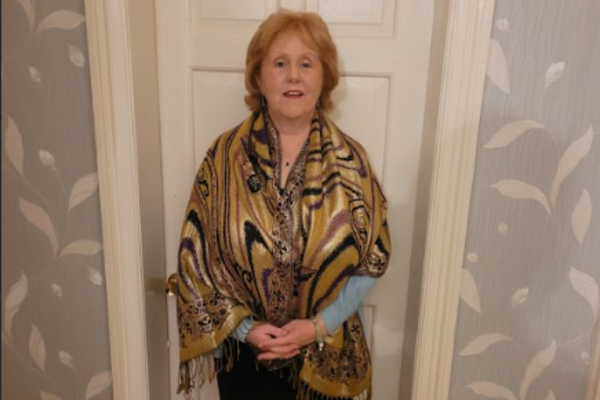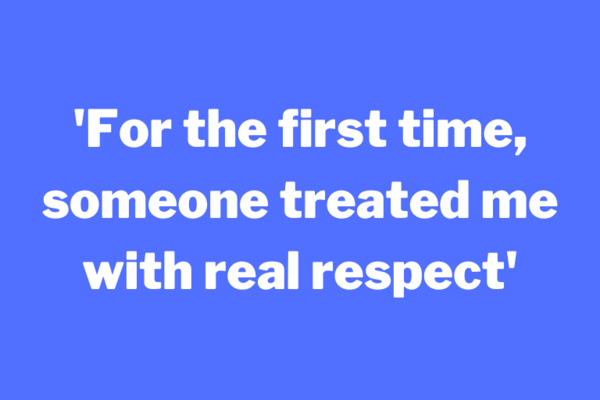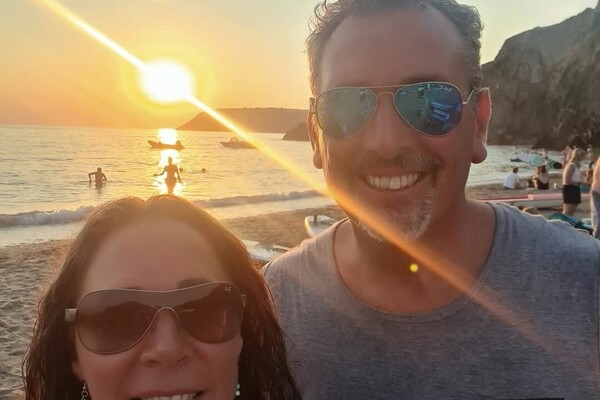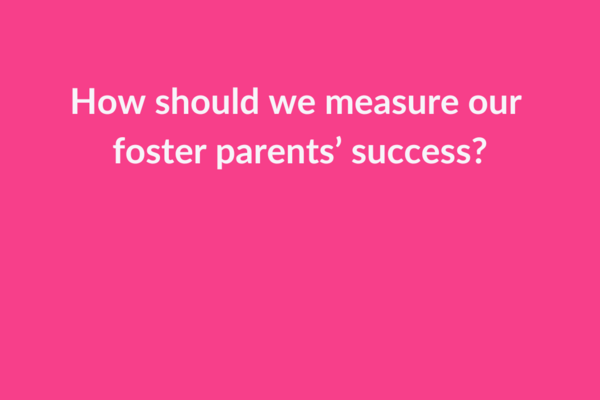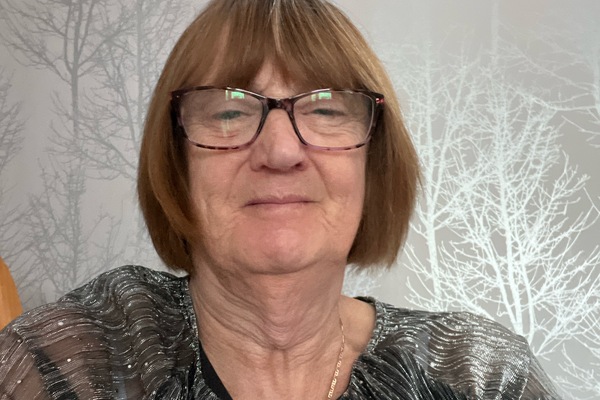Let’s start with why you wanted to get into fostering: what was it that made you want to get involved?
I was adopted when I was a baby and I always wanted to foster, even before I had my own children. I was the eldest of eight, so I had a lot of experience of looking after younger kids. One of my sisters was 23 years younger than me and I was a bit like a second Mum to her. I approached the local social services, as they were back then, but they decided that I needed to have my own kids first before they would even consider me. As my children were growing up, I became a single parent and we didn’t have a spare room so I couldn’t do it for many years. It wasn't until I was in my mid-fifties when my kids were grown up and I had a bigger house that I looked at it again with my second husband, and we've been doing it ever since. It’s been a difficult, but a very rewarding journey.
I love that it’s been something you’ve been passionate about for many years, and you held onto that goal and made it happen. When you started fostering, was it different to what you imagined?
In hindsight I would have preferred to have done it when I was younger because I feel I could have grown with the kids. However, when you have your own children and grandchildren, you’ve got a lot more life experience, patience and advice to give. Rather than facing and solving different problems over a period of time like you do with your own children, these kids come with their problems all at once and you have to deal with it in one go. Experience really helps here.
You’ve mentioned that fostering is both difficult but rewarding. Could you share how you’ve managed to deal with some of these challenges?
We've had some very challenging children. One girl set fire to our house, and not too long ago another girl climbed out of a window and got stuck on the roof. It wasn't a very high roof, and we ended up with 12 men from the ambulance service and the fire brigade milling around in the back garden. Some of these behaviours are very challenging, and it's about unraveling these with the children. Many of the children are not very good at communicating and find it difficult to tell you how they feel, so you have to try to get to the bottom of it all and understand what's making them unhappy.
The training we get is very helpful. We’re with a therapeutic agency and they teach us about trauma, how it can present itself, and how to deal with tricky situations without harming yourself and the rest of your family. Our agency is very supportive, and they have a good out of hours service where the person on the end of the phone can access the child’s records and make sure they are fully supporting their needs. When we first started fostering we worked for the local authority, but we left after a few years because we just weren’t given the support we needed. One time we had five teenage boys living with us, all with different problems, and we didn't get an awful lot of support from them at the time.
An off-putting experience like that can sometimes stop people fostering for good. After taking a break, what made you want to go back?
We were drawn to fostering. I’m from a big family, my husband is one of nine and we’ve always wanted children in the house. We just want to try and give somebody else a good, loving home and make a difference to their lives. That was why I wanted to do it all those years ago: I wanted children in the house but they didn’t necessarily have to be mine. We felt that an agency would be able to help us do that – and they have. They provide more personal support: they know you and the children better and what sort of support you need.
Let’s put challenges to the side and think about the rewarding stuff. What’s your favourite part about fostering?
It’s when the foster children realise that they’re part of the family. The girl who’s with us now has been here for two years and for the first 18 months she pushed me away completely, sometimes being very rude to me. This is the longest placement she's ever been in because she used to break them down. In the last six months, the penny has dropped and she’s started to settle down. She looks at things from two sides of the coin now and thinks things through much more. She’s doing well at school, she’s friends with our grandkids, and she seems much happier.
It’s also nice to see how the children you’ve looked after progress. You get kids that come back to see you after they've left, or still stay in touch. One boy left a couple of years ago and every now and again I'll get a text message from him to ask how we are, and then he tells us what he's doing. We had another boy who brought his own little girl trick or treating on Halloween, and he introduced us as his parents. You really know that you've made a difference when they do things like that. The other day a social worker told me that many foster carers won't get to see the impact they've made on kids until those kids are in their twenties, and some won't get to see it at all.
You’ve seen the success stories and you’ve seen the challenges of fostering. What do you wish you’d been told right at the start of your fostering journey that would have really helped in those first couple of years?
To do your homework before you go into it. Do lots of research because it's not an easy job and it's not straightforward. When I first started fostering, I worked in the NHS as an Operations Manager. I wasn't aware of trauma or the impact your early childhood has on you as an adult. These are things I've learned along the way, but doing some research into it before you start can help you support children better as well as informing your decision whether this is the right thing for you. It’s important not to jump into it lightly, because you’re not doing the kids or yourself any favours if you do.
You’ve mentioned that the training you get is really helpful. What other support or resources are valuable in the daily life as a foster carer?
During the training you network with other foster carers as well, and it’s really helpful to get their viewpoint on things. It’s especially important if you’re having a bit of an off day. Recently, our young lady got into trouble at school and she wasn’t speaking to me, and I was feeling a bit sorry for myself. Talking to another carer who drives me to training and hearing about the really tough time she was having with one of her foster children put some of the challenges that I’d been having into perspective. It really helps to get this off your chest sometimes and talk to somebody who understands what you’re going through.
How do you and your husband make sure you look after yourselves and your wellbeing through this process?
We get frequent respite every six weeks or so, to provide continuity. We have the same respite carer for the child, and it helps because it gives you a break. She gets on really well with the respite carer – even though sometimes she says she doesn’t want to go – but if you explain it to her with plenty of notice she’s okay with the change of scenery and enjoys it when she’s there.
And finally, do you have any other words of advice or anything else you’d like to share with other carers?
Throughout this process, you must consider your existing family. Having your children and other family members on board can make it make or break it. My kids were adults when we decided to foster. I still had one son living at home at the time, but they were all on board with it – they had to be because they were all interviewed for our Form F process. Overall, they've been in agreement with it, but there have been a few things over the years which has caused them to say that we shouldn’t have done it. Communication all the way through really helps with this.

